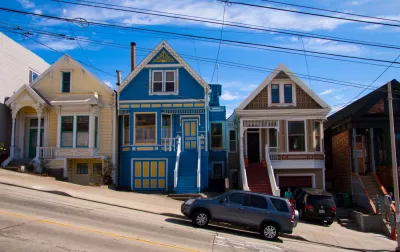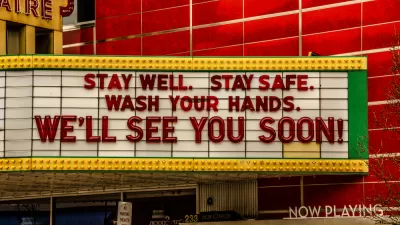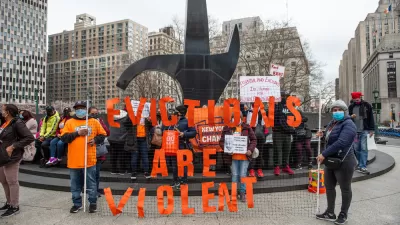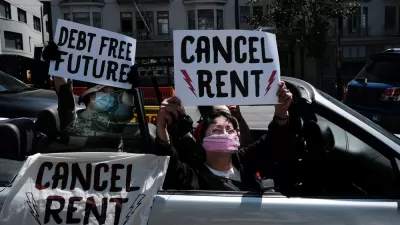Declining rents won't be a silver lining in the post-pandemic housing crisis.

Before the pandemic, millions of Americans were struggling to pay rent and home ownership was a distant dream for more and more young Americans, and nothing about the economic outcomes of the pandemic have improved the prospects of the housing market. According to an article by Jake Blumgart, the coronavirus pandemic is worsening the pre-existing housing crisis for Americans living in expensive cities.
Building could slow down in the medium term, as construction loans (risky bets in the best of times) become harder to come by. Unsubsidised affordable housing is often owned by small landlords, who are more likely to struggle during recessions, prompting flips to home ownership or sales to rental empires.
For more insight into the pandemic's effect on the pre-existing housing affordability crisis, Blumgart interviews New York Times reporter Conor Dougherty, who released a book, Golden Gates, on the causes of the housing crisis just prior to the outbreak.
One particularly insightful section of the interview discusses the different kinds of housing crisis facing different cities. According to Dougherty, "There are the really out of control, fast-growing, rich cities: the Bay Area, Seattle, New York. There are declining Detroits and Clevelands, usually manufacturing-centric cities. Then there are sprawling Sun Belt cities."
Much of the interview, like Doughery's book, focuses on cities in that first group. As for Dougherty's opinion about what some of these prosperous cities will look like after the pandemic, and whether the predictions of an urban exodus will come to fruition, Dougherty stops short of making a prediction, and instead raises several salient questions.
If unemployment remains over 12% in San Francisco, yes, rent is going to be a lot cheaper. But is that really the reality we're all looking for? If restaurants and bars that were key to the city's cultural life remain shut, but rent is cheaper, is that what everyone wants? I bet you when this is all over, we're going to find out the tech people left at a much lower rate than others. Yes, they can all work from home, but what do you think has a bigger impact on a city: a couple of companies telling people they can work from home or the total immolation of entire industries basically overnight?
FULL STORY: How the pandemic is magnifying structural problems in America's housing market

Alabama: Trump Terminates Settlements for Black Communities Harmed By Raw Sewage
Trump deemed the landmark civil rights agreement “illegal DEI and environmental justice policy.”

Study: Maui’s Plan to Convert Vacation Rentals to Long-Term Housing Could Cause Nearly $1 Billion Economic Loss
The plan would reduce visitor accommodation by 25% resulting in 1,900 jobs lost.

Planetizen Federal Action Tracker
A weekly monitor of how Trump’s orders and actions are impacting planners and planning in America.

Wind Energy on the Rise Despite Federal Policy Reversal
The Trump administration is revoking federal support for renewable energy, but demand for new projects continues unabated.

Passengers Flock to Caltrain After Electrification
The new electric trains are running faster and more reliably, leading to strong ridership growth on the Bay Area rail system.

Texas Churches Rally Behind ‘Yes in God’s Back Yard’ Legislation
Religious leaders want the state to reduce zoning regulations to streamline leasing church-owned land to housing developers.
Urban Design for Planners 1: Software Tools
This six-course series explores essential urban design concepts using open source software and equips planners with the tools they need to participate fully in the urban design process.
Planning for Universal Design
Learn the tools for implementing Universal Design in planning regulations.
Caltrans
Smith Gee Studio
Institute for Housing and Urban Development Studies (IHS)
City of Grandview
Harvard GSD Executive Education
Toledo-Lucas County Plan Commissions
Salt Lake City
NYU Wagner Graduate School of Public Service





























